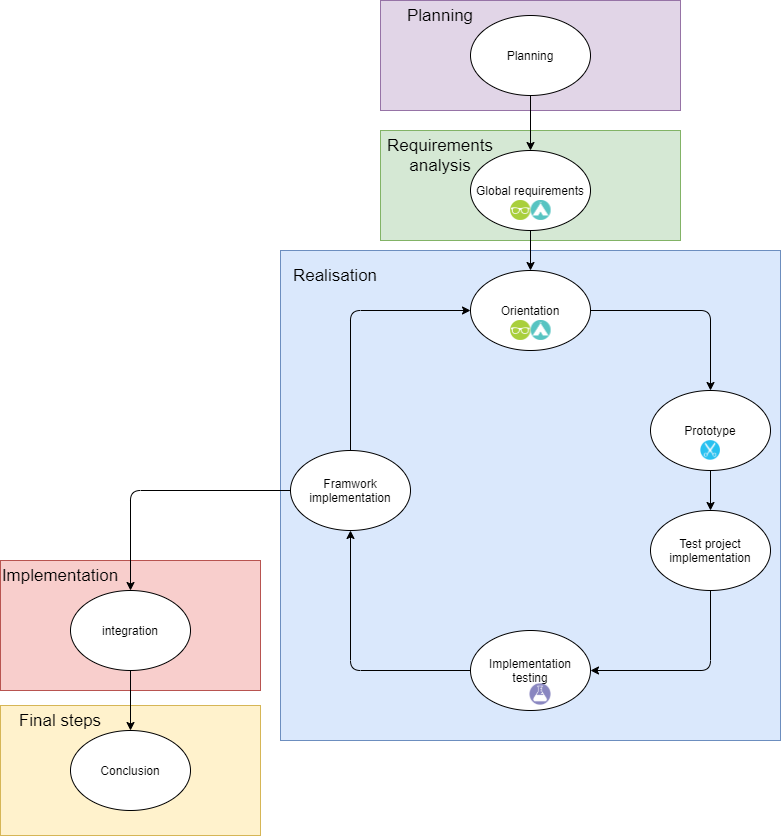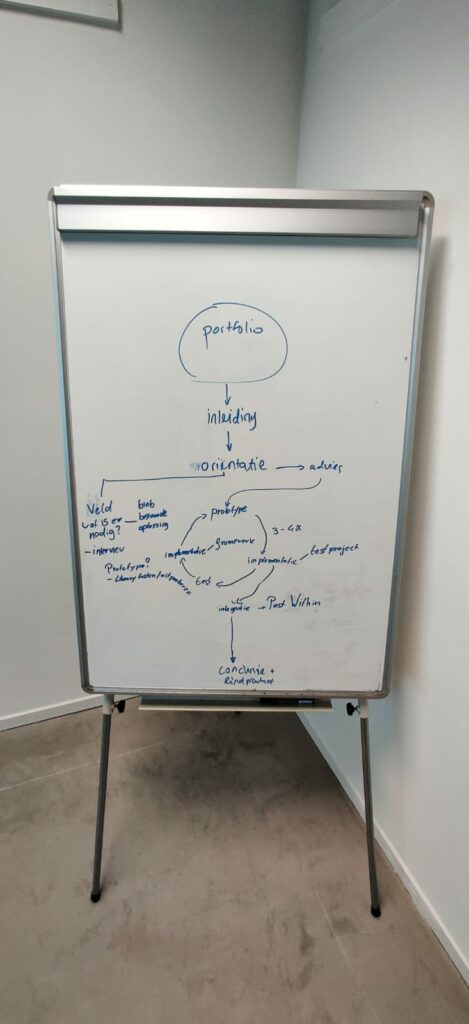During my internship at The Tall Ones I used an agile way of working. This means instead of designing the entire project at the start and then developing the project in one go, the project would be developed in an iterative process.
In the diagram below you can see a visual representation of the development process

Planning phase
At the start of the project during the planning phase this diagram was created with working in an agile way in mind. The diagram shows five stages of the development process.
- Planning
- Requirements analysis
- Realization
- Implementation
- Final steps
Requirements analysis
After the planning phase the global requirements for the project were set, these requirements consisted of some important features that had to be kept in mind during the development of the project. Some examples of these requirements:
- What platforms should be supported?
- Does the project need to be available outside of Unity?
- What feature should be implemented on all platforms?
Realisation
The realization phase was split up in sprints of 2 weeks. A sprint is a predefined length of time, in this case 2 weeks, in which new features will be developed and added to the project.
These sprints where then split up into 5 stages.
Orientation
During the orientation stage a new list of features was set up and a short research was done on how to implement these new features.
Prototype
After researching the new list of features a quick and dirty prototype was made of every feature to test if the implementation would work in the final project.
Test project implementation
After creating a quick prototype and validating it worked. The prototype was converted to a better refined implementation in the test project.
Implementation testing
Using the test project the newly added features would be tested on all platforms to validate they were working the correct way.
Framework implementation
The last stage of a sprint would be implementing the the tried and tested features in the final framework. This Framework was an almost exact copy of the test project but in a complete separate Unity project. This was done to validate that there would be no external dependencies include in the feature implementations.
Implementation phase
In the implementation phase the created project was added to the existing game to validate if it was possible and how easy the project was to implement. Read more…
Final steps
The final phase was used to finish this graduation protfolio and gather feedback on the project, and on me as an intern at The Tall Ones which can be found here.
